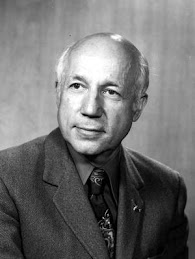
Title of Article: Mapping the Cancer Genome
Authors: Francis S. Collins and Anna D. Barker
Source: Scientific American Special Edition
Date Published: February 2007
Date Obtained: February 22 2009
Mapping the Cancer Genome pertains to the Molecular Genetics Unit of Study
Link to the Article: http://www.sciam.com/article.cfm?id=mapping-the-cancer-genome
Summary of the Article:
Mapping the Cancer Genome is an article about The Cancer Genome Atlas (TCGA), and the potential implications of sequencing the genome of every type of cancer. TCGA's goal is to sequence "cancer's" genome, and compare it with that of a healthy human being, which was provided by the human genome project. For now, the project has its eyes set on the 50 most common types of cancer; the equivalent of ten thousand human genome projects. The idea behind sequencing every possible type of cancer is to find out which gene mutations are causing the disease. This concept has already shown positive results; a gene called B-RAF was found to be mutated in seventy percent of examined melanoma cases. Once a mutated gene is identified as the cancer causing agent, it can be manipulated to restrict the outbreak of the disease (as mentioned in the previous blog entry). TCGA is hopeful that every type of cancer can be sequenced some time in the future, and become available to researchers around the world.
While reading this article, I learned why there can be no definitive "cure" for cancer. Cancer comes in so many different forms, and each of these can be caused by several different combinations of gene mutations. A malignant lung tumor can be caused by a defective gene "X" in one person, and a completely different gene defect; "Y" in another. I think that this initiative is a crucial step in understanding, and ultimately eliminating cancer. If sometime in the distant future, "Cancer's" entire genome is mapped, it may serve as a guidebook for eliminating this rampant disease. The ethical issue surrounding this project is whether or not the immense cost is worth the uncertain outcome. The project is riddled with challenges and ethical policy dilemmas. Once cells become cancerous they are prone to even greater mutation, resulting in the possible variation of genomic makeup of cells within the same tumor, and a harder time sequencing. Also, the ethical issue of maintaining the confidentiality of patient information arises. Even with these possible setbacks, I believe that the prospect of a cure should be reason enough for the project to proceed.










